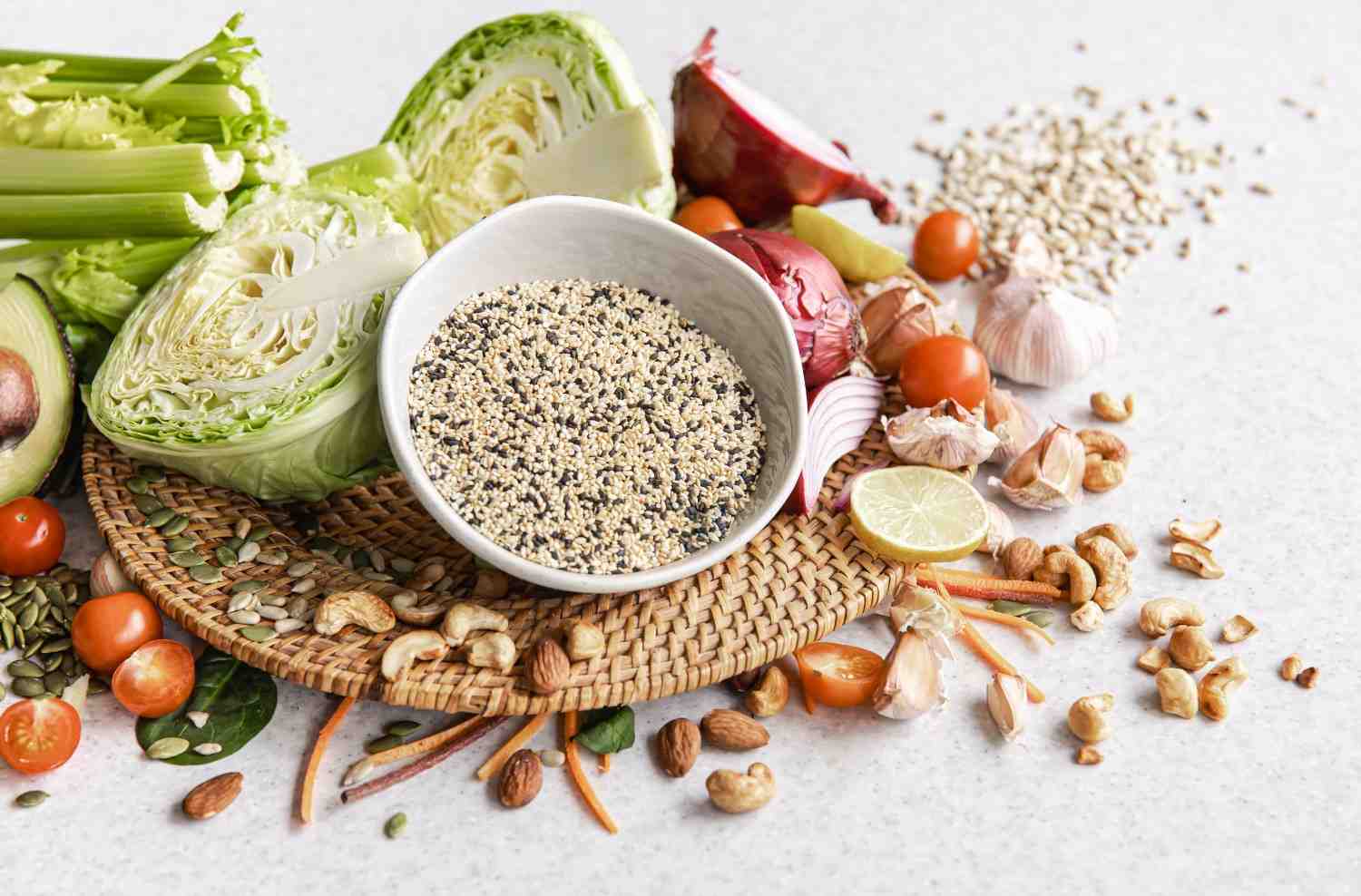Have you ever felt like your brain is wrapped in fog? Maybe you’re trying to focus on a project, but your mind keeps wandering. It’s a common struggle in our fast-paced world. But what if I told you that your diet could play a significant role in enhancing your brain clarity and focus? That’s right! Certain foods can boost cognitive function and improve mental acuity. Let’s dive into five superfoods that might just help clear the haze and sharpen your mind.
Contents
1. Blueberries: The Brain Berries
Why They’re Super
Blueberries are often touted as a superfood, and for good reason. Packed with antioxidants, particularly flavonoids, they have been shown to improve communication between brain cells, enhance memory, and even delay age-related cognitive decline. A study published in the Journal of Agricultural and Food Chemistry found that regular consumption of blueberries can lead to improvements in memory and cognitive function (Kalt et al., 2019).
Pros and Cons
Pros:
- High in antioxidants.
- Low in calories.
- Versatile; can be added to smoothies, oatmeal, or eaten as a snack.
Cons:
- Can be expensive, especially when out of season.
- Some people may find them too sweet or tart.
Personal Take
I’ve started adding blueberries to my morning smoothies, and let me tell you, they not only taste great but also give me that mental boost I need to tackle my day. Plus, they’re easy to find in most grocery stores.
2. Fatty Fish: The Omega-3 Powerhouses
The Brain Benefits
Fatty fish like salmon, mackerel, and sardines are rich in omega-3 fatty acids, which are crucial for brain health. Omega-3s are essential for building brain and nerve cells, and they play a vital role in improving memory and overall cognitive function. According to a study in Frontiers in Aging Neuroscience, higher omega-3 levels are associated with better cognitive performance and a lower risk of dementia (Yurko-Mauro et al., 2010).
Pros and Cons
Pros:
- Excellent source of high-quality protein.
- Can improve mood and reduce anxiety.
Cons:
- Some people are allergic to fish.
- Sustainability concerns; it’s crucial to choose responsibly sourced fish.
A Quick Recipe
I love preparing a simple baked salmon with herbs and lemon. It’s quick, delicious, and the health benefits are undeniable. If you’re not a fan of fish, consider a high-quality fish oil supplement, but always consult with your healthcare provider first.
3. Dark Chocolate: The Sweet Brain Boost
Why It Works
Yes, you read that right! Dark chocolate can actually be good for your brain. It contains flavonoids, caffeine, and antioxidants that may enhance memory and improve mood. A study published in the Journal of Psychopharmacology found that consuming dark chocolate can improve cognitive function and enhance mood (Desch et al., 2010).
Pros and Cons
Pros:
- Can improve mood and cognitive function.
- Contains antioxidants.
Cons:
- High in calories and sugar; moderation is key.
- Not all chocolate is created equal; look for at least 70% cocoa.
My Chocolate Habit
I keep a bar of dark chocolate in my fridge for those afternoons when I need a little pick-me-up. A square or two can make a world of difference in my focus and mood. Just remember, moderation is key!
4. Kale: The Leafy Green Wonder
The Cognitive Benefits
Kale might not be the first food that comes to mind when you think of brain health, but this leafy green is a powerhouse of nutrients. It’s rich in vitamins K, A, and C, as well as antioxidants that can help reduce oxidative stress in the brain. A study in Nutrients suggests that a diet rich in leafy greens is associated with slower cognitive decline (Shatenstein et al., 2016).
Pros and Cons
Pros:
- Nutrient-dense and low in calories.
- Versatile; can be used in salads, smoothies, or cooked dishes.
Cons:
- Some people dislike the bitter taste.
- May cause digestive issues for some.
Easy Kale Recipe
I often make a simple kale salad with a lemon vinaigrette and some nuts for crunch. It’s quick to prepare and a great way to incorporate more greens into my diet. Plus, it feels good knowing I’m doing something positive for my brain!
5. Walnuts: The Brain Nuts
Why They’re Good
Walnuts are another fantastic brain food. They are the only nut that contains significant amounts of DHA, a type of omega-3 fatty acid that has been linked to improved cognitive function. Research published in the Journal of Nutrition found that walnut consumption is associated with better cognitive performance (Tapsell et al., 2009).
Pros and Cons
Pros:
- Easy to snack on.
- Great source of healthy fats and antioxidants.
Cons:
- High in calories; it’s easy to overeat.
- Some people may have nut allergies.
Snack Idea
I love tossing a handful of walnuts into my morning yogurt or oatmeal. They add a nice crunch and keep me feeling full longer. Plus, they’re great for brain health!
FAQs
Q1: How quickly can I see results from eating these superfoods?
A: While it varies from person to person, many people report feeling more focused and clear-headed within a few days to a week of incorporating these foods into their diets.
Q2: Are there any side effects to eating these superfoods?
A: Generally, these foods are safe for most people when consumed in moderation. However, if you have allergies (like to fish or nuts) or other dietary restrictions, consult with a healthcare provider.
Q3: Can I take supplements instead of eating these foods?
A: While supplements can help, whole foods provide a complex mix of nutrients that work together for optimal health. It’s best to aim for a balanced diet.
Q4: What’s the best way to incorporate these foods into my diet?
A: Start small! Add blueberries to your breakfast, snack on walnuts, or include fatty fish in your weekly meals. Experiment with recipes to find what you enjoy.
Conclusion
Incorporating these five superfoods—blueberries, fatty fish, dark chocolate, kale, and walnuts—into your diet can offer significant benefits for brain clarity and focus. It’s not just about what you eat; it’s about how you feel. A clear mind can lead to better decision-making, improved productivity, and an overall enhanced quality of life. So, why not give them a try? Your brain (and taste buds) will thank you!
Disclaimer: This article is for educational purposes only and is not a substitute for professional medical advice. Always consult a qualified healthcare provider before making changes to your health routine.
References
-
Kalt, W., et al. (2019). Blueberry supplementation improves memory in older adults. Journal of Agricultural and Food Chemistry. https://doi.org/10.1021/acs.jafc.9b00178
-
Yurko-Mauro, K., et al. (2010). Beneficial effects of docosahexaenoic acid on cognition in age-related cognitive decline. Frontiers in Aging Neuroscience. https://doi.org/10.3389/fnagi.2010.00009
-
Desch, S., et al. (2010). Effects of cocoa products on blood pressure and other cardiovascular risk factors: a systematic review. Journal of Psychopharmacology. https://doi.org/10.1177/0269881109103780
-
Shatenstein, B., et al. (2016). Leafy green vegetable consumption and cognitive decline in older adults: the Canadian Study of Health and Aging. Nutrients. https://doi.org/10.3390/nu8120771
-
Tapsell, L. C., et al. (2009). Health benefits of nuts: a systematic review. Journal of Nutrition. https://doi.org/10.3945/jn.109.115389
Get Your FREE Natural Health Guide!
Subscribe now and receive our exclusive ebook packed with natural health tips, practical wellness advice, and easy lifestyle changes, delivered straight to your inbox.




